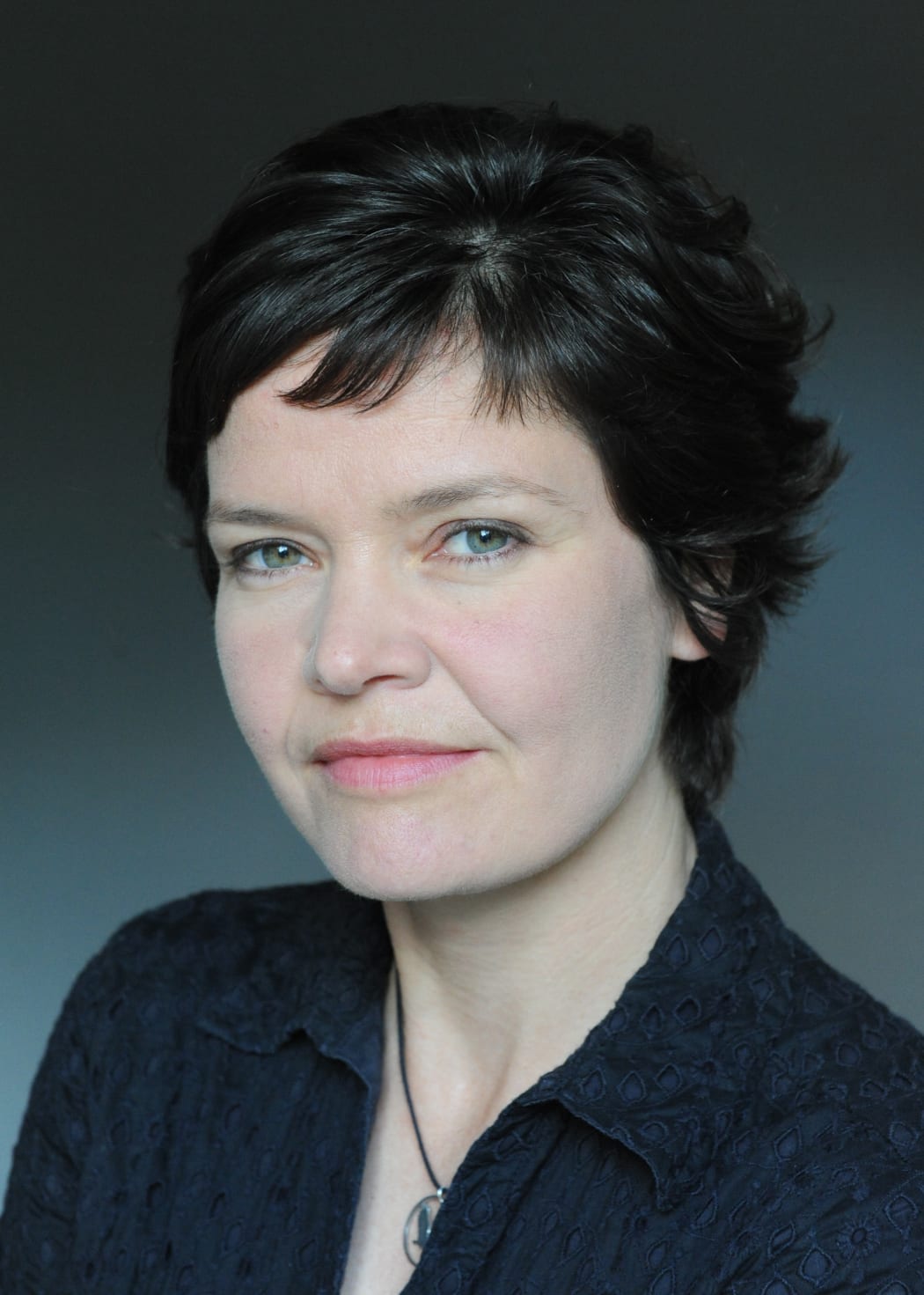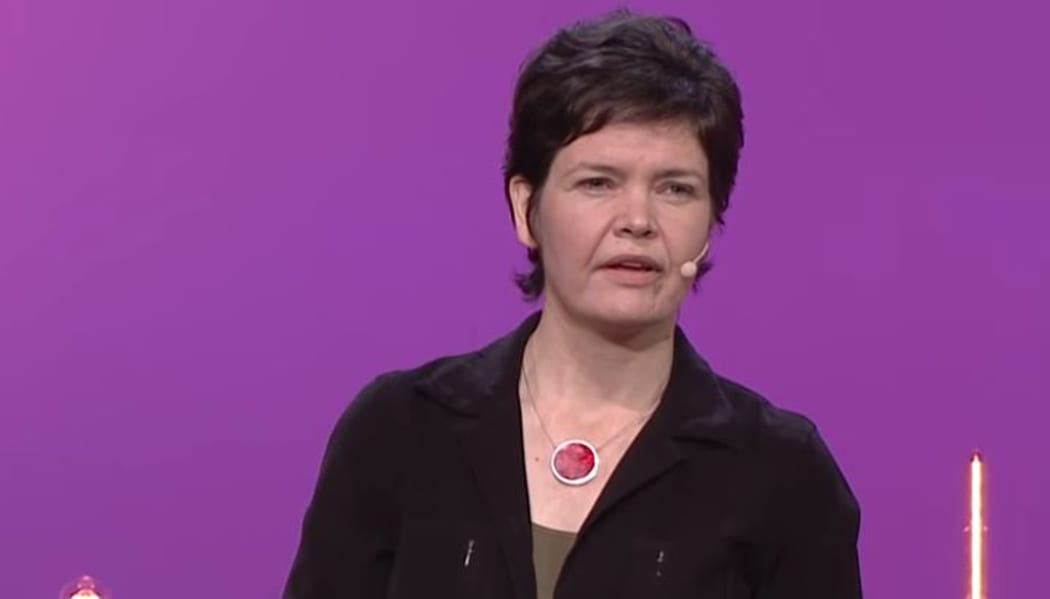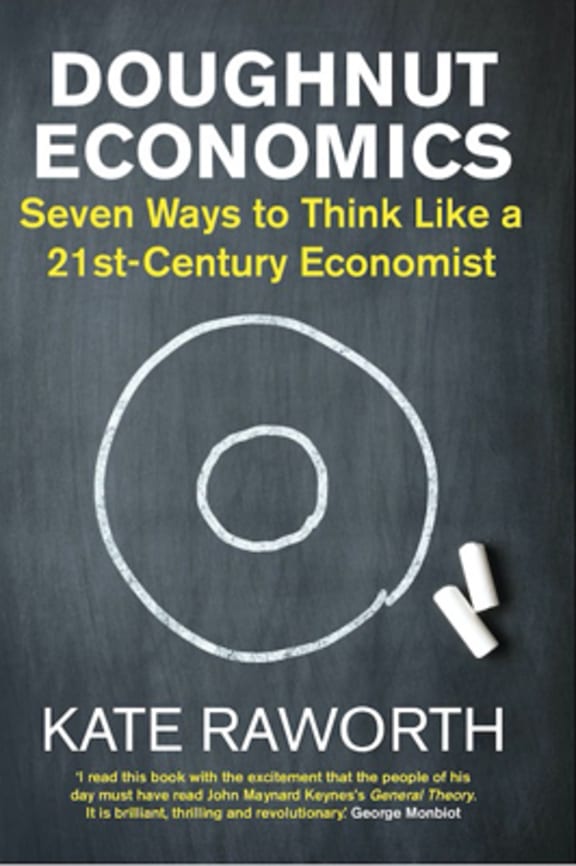When Kate Raworth went up to Oxford University to study politics, philosophy and economics, she wanted to learn "the mother tongue of public policy."
This was the 1980s; the time of the Ethiopian famine, the shrinking ozone layer and the first time global warming started to enter wider public discourse.

Photo: Supplied
She hoped economics might provide some of the answers to these problems.
"I was looking for frames, words, concepts, diagrams, tools that would help me tackle these things and it didn't show up," she tells Kathryn Ryan.
Classical economics offered little insight, she says.
"They are offered just two words: 'Oh theses are environmental externalities'. Now, our alarm bells should already be going off if we are told we should best describe the breakdown of the living world on which all of our lives depend as an environmental externality."
Since then she has grappled with the problem of how economics might be better framed to encompass environmental constraints and social cohesion.
Her best-selling book Doughnut Economics: Seven Ways to Think Like a 21st Century Economist, published in 2017, sets out a regenerative, circular economic model that, she says "meets the needs of all within the means of the planet."

Kate Raworth Photo: screenshot
"We have inherited economies from the 20th century that are degenerative by design, our economies are structured industrially in a linear way; we take earth materials, we make them into stuff we want, we use it for a while and then we throw it away and that take-make-use-lose cuts against the cycles of the living world," Raworth says.
Classical economics stems from original thinkers such as Adam Smith and J.S. Mill who regarded humans as essentially self-interested beings, she says.
In The Wealth of Nations, Adam Smith wrote:
"It is not from the benevolence of the butcher, the brewer and the baker that we expect our dinner, but it is from their regard for their own interest."
This wealthy, white, male perspective overlooked the selfless side of our natures, she says.
"Adam was 43 when he wrote that book, he wasn't married, he didn't have kids, he actually moved back home to live with his old mum and she made his dinner every day.
"So while he was sitting at his desk, writing these grand words about how it's not from the benevolence of the butcher, the brewer, the baker that we expect our dinner but from their own self-interest, it was actually his mum, back there in the kitchen making his dinner.
"If only his mother had called him 'Adam dinner's on the table' at that moment maybe he could have had a fabulous insight and realised that there's such a thing as the unpaid work of the household economy and it's not all about markets."
The idea that markets are rational and self-correcting was influenced by contemporaneous Newtonian physics, she says.
The likes of Smith and Mill were desperate to show this new way of thinking about economics was a science, she says.
"They modelled economics literally on Newtonian physics trying to show that just as gravity pulls a pendulum to rest, so prices pull markets into balance."
The last forty years have seen the rise of neoliberal orthodoxy after a 50-year period when markets were seen as something to control and government intervention as benign. The seeds of this movement go back to the end of the war, she says.
The birth and rise of neoliberalism
In 1947 a group of economists gathered in Mont Pelerin Switzerland to set out a counter philosophy to the Keynsian theories that were then prevalent.
"They were motivated by seeing the rise of the Soviet Union and they believed that if you give the state an inch it'll take a mile, in fact it will take the whole damn lot.
"You have to absolutely minimise the role of the state because it will always try to expand."
Their ideas remained outliers until the late 1970s, she says.
"They had to wait decades before those ideas were put on the political stage: they started think tanks, they funded university posts, and they spread their networks."

Photo: Kate Raworth
By 1980s when Ronald Reagan and Margaret Thatcher came to power in the US and the UK respectively, the ideas of neoliberalism had found a natural political home.
"Reagan had around 20 members of the Mont Pelerin Society around him on his presidential election team. Thatcher's first Chancellor of the Exchequer [Sir Geoffrey Howe] was a member of the society," Raworth says.
Those ideas have largely held sway ever since, she says.
"The idea of trickle-down economics, even framing the environment as an externality, the idea that growth will even the economy out, if we all tighten our belts we'll all come through better off, the idea that growth will clean up pollution after itself it all comes of here.
"The neoliberal frame has become so embedded it's seen as, well, this is what economics is."
The idea the economy is separate to the environment, separate to society, has warped public policy with ruinous results, she says. Her circular or donut model is an attempt to change that mind-set.
"I drew a picture of the economy and it comes out looking like a donut: the purpose is to meet the needs of all people within the means of this incredible delicately balanced living planet."
Seven things need to happen, she tells Kathryn Ryan.
Change the goal
"What's the purpose of the economy? It has become fixated on growth, that's all we hear politicians talk about, job done, its growing."
See the big picture
"Realise the economy exists within society and within the living world and it depends upon the living world to protect earth systems in order to survive."
Revisit who we think we are
"Last century's economics told us we're rational economic man, that is just such a narrow view of who we are and the dangerous thing about it is the more students learn about it the more they start to mimic it."
Most people aren't money-seeking, they are "purpose seeking", she says
"Because as much as we can be self-interested and competitive, we can be collaborative we are deeply social animals and we need to tap into that much wider understanding of who we are."
Recognise the economy is complex
"The original creators of economics made it a very static analysis … the economy is more like a flock of birds, flying in the sky dynamically always moving.
"When we jump into a complexity mind set, we start seeing different patterns and different ways of intervening."
Move from a growth-obsessed model
"We need to get away from the idea that a growing economy means we'll go through a period of inequality but 'don't worry we'll all come out better on the other side.'
"That was a very dominant myth of the second half of the 20th century.
"Actually economies don't become more equal we've seen an extraordinary concentration of resources in the hands of a global 1 per cent, so we need to create economies that are distributive by design."
Economies should distribute fairly
"[That's] Distributing opportunities, the opportunity to own wealth, to generate your own electricity, to have access to the internet to access to open source ideas."
Economies should be regenerative by design
"Today we have economies that need to grow whether or not they make us thrive, we are structurally dependent upon endless growth - financially, politically and socially."
This is a fairly recent phenomenon, she says
"Our economies have had 100 years of growth and it's become such a background normal, that we've structured it into the design of our institutions."
After the collapse of the banking system in 2008 there was a hunger for a new way of looking at economics, but she says she worried at the time it would revert to different, but narrow parameters.
"So much of it was about re-thinking the financial markets and I thought there's no way we can sit around now and watch economics get re-written so it works better for finance while were in the middle of a massive ecological crisis of climate breakdown and biodiversity loss.
"And we're in the middle of a massive social crisis globally. The richest 1 percent of people own half of the world's wealth, this is insane.
"The US writer William Burroughs wrote after taking one look at this planet any visitor from outer space would say 'I want to see the manager'."
Kate Raworth will be in New Zealand in May, in conversation with Rod Oram speaking about Doughnut Economics at 7pm on Monday May 13th, opening the Auckland Writers Festival.

